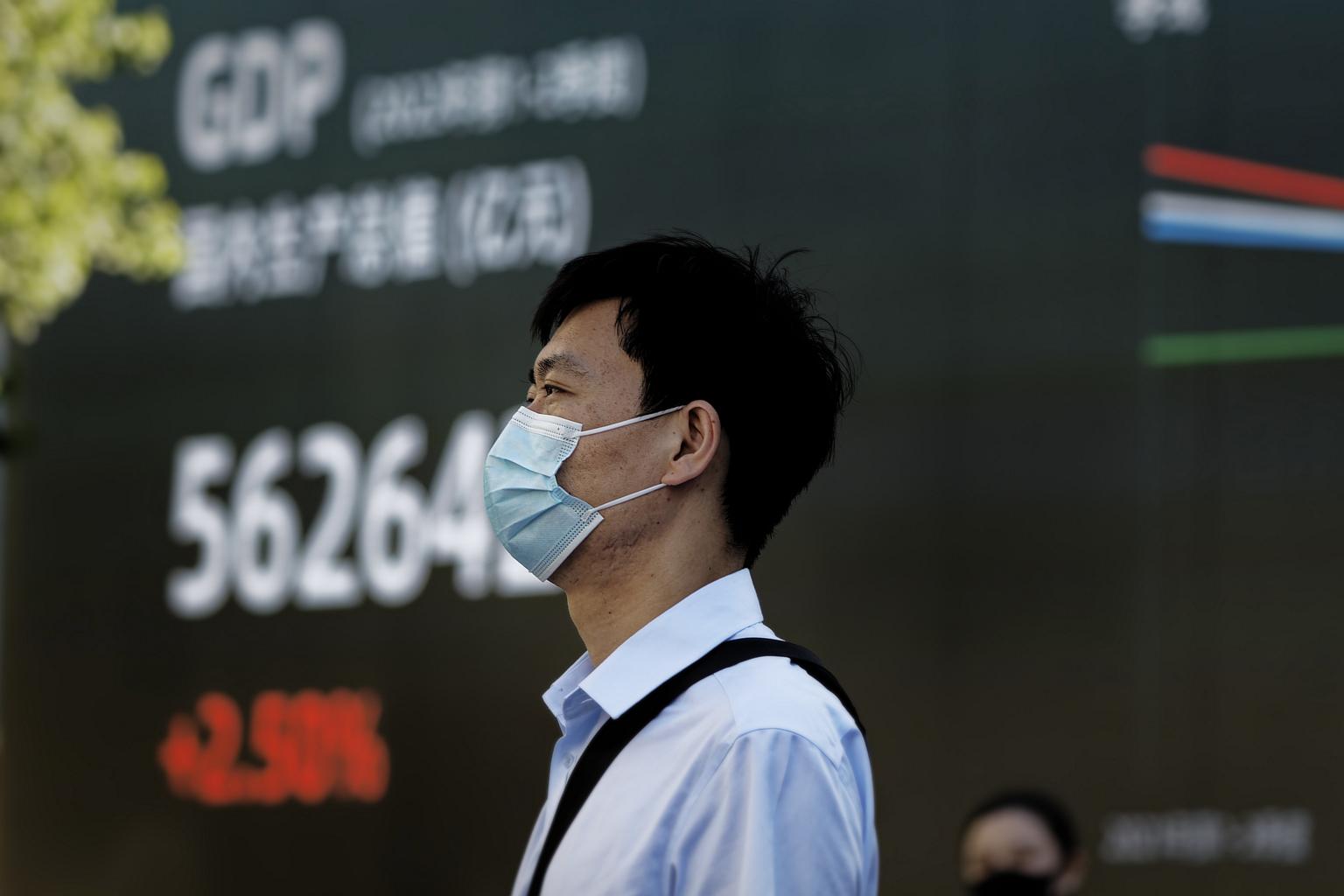China's IPO market trounces the world with record $80 billion boom
Sign up now: Get ST's newsletters delivered to your inbox

China's IPO market has defied headwinds such as rising interest rates and fears of a US recession.
PHOTO: EPA-EFE
Follow topic:
BEIJING (BLOOMBERG) - From London to Hong Kong, large initial share sales have all but dried up across the world's major financial centres this year. But the market in China is bustling with activity.
Initial public offerings (IPOs) on mainland exchanges have climbed to US$57.8 billion (S$79.8 billion) so far in 2022, the largest ever for such a period, according to data compiled by Bloomberg. There have been five IPOs of above US$1 billion since January this year, and one more is on the way. That is versus just one such sale each in New York and Hong Kong, and none in London.
China's IPO market has defied headwinds such as rising interest rates and fears of a US recession, which have brought major equity fund raising elsewhere to a virtual standstill. Offerings in the Asian economy - whose monetary policy is diverging from the US Federal Reserve - are largely geared towards local investors.
The surge in listings, according to some market watchers, is also driven by concern that economic conditions could worsen later in the year as flare-ups in virus cases cause Beijing to stick to the strict Covid-zero strategy. Top leaders have signalled a softening on this year's official growth target of around 5.5 per cent, denting optimism about a rebound.
"Companies have a stronger willingness for IPO because they see the first half as a better time window to get listed than the time ahead," said Mr Shen Meng, a director at investment bank Chanson & Co. "They have a weaker outlook for the market and worry that factors including earnings uncertainty could make listing in the future harder than now."
With companies rushing to list, China's share in global IPO proceeds has more than tripled to 44 per cent this year from 13 per cent at the end of 2021.
Better performance of newly traded stocks has also been a draw for listing hopefuls. Shares of mainland IPOs are up by an average 43 per cent this year over their listing price, versus the 13 per cent drop seen in Hong Kong.
Meanwhile, China's benchmark CSI 300 Index has fallen about 16 per cent since Dec 31 last year - one of the worst performers among major global equity gauges - as investors have had to grapple with stringent Covid-19 curbs, a deepening real-estate crisis and a continued crackdown on Internet giants.
New share sales owe part of their strong performance to the fact that valuation during the IPO is capped by local rules. That typically ends up leaving some gains on the table for the newcomers. Flops happen, but they are rare.
Some of the deals that boosted the tally in China have political undertones. Telecom provider China Mobile and energy producer CNOOC, the biggest debuts of 2022, both listed at home after being kicked out of the US following their inclusion on a Donald Trump-era blacklist. In China, they raised US$8.6 billion and US$5 billion, respectively, and are trading well above their listing prices.
"China is a separate market from the rest of the world. Something that is unique among Chinese investors are those patriotic trades," said Mr Ke Yan, the head of research at DZT Research in Singapore. "Buying stocks that help China to be more independent from the rest of the world and to resist transactions from the US is normal."
Overall, the tech sector has been one of the busiest for new share sales in China. Demand for computer component manufacturer Hygon Information Technology's 10.8 billion yuan (S$2.2 billion) IPO exceeded the amount on offer by 2,000 times. Order-taking began on Aug 3, just as US House Speaker Nancy Pelosi's controversial visit to Taiwan rattled global markets.
A semiconductors maker, a manufacturer of digital storage products and a chips producer surged after debuting in the mainland on Aug 5. Together, their IPOs raised US$1.1 billion.
A lot of the stocks now coming to market in China "are from the tech sector, that investors seem eager to buy given the focus on building up home-grown capabilities," said Mr Brian Freitas, an analyst for independent research platform Smartkarma in New Zealand.

